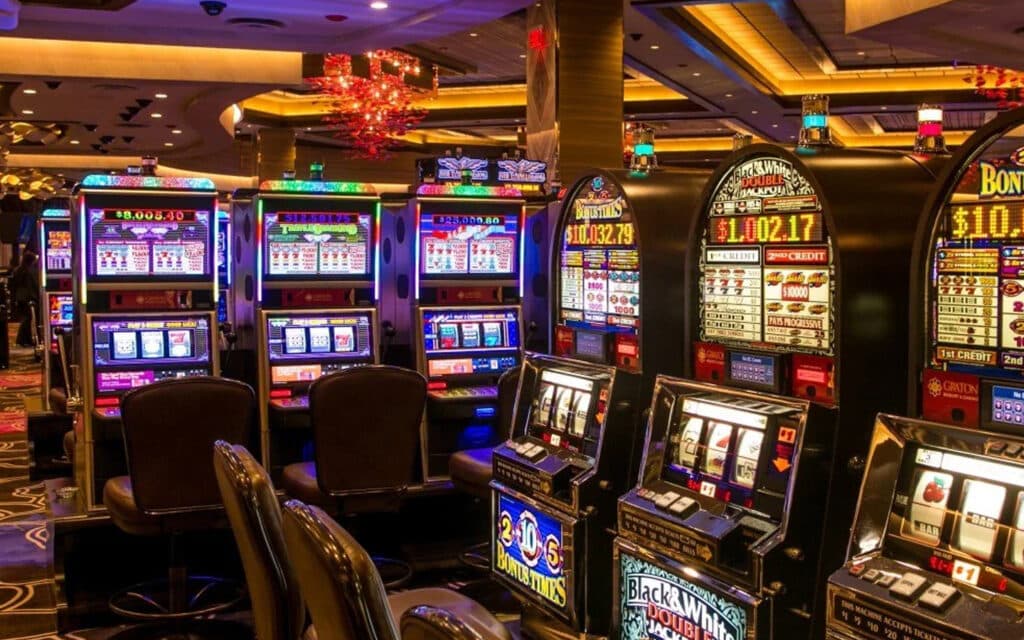
Casino entertainment have long been an integral part of human culture, delivering not just entertainment but a fascinating reflection of our hopes, ambitions, and concerns. From the turning reels of a slot machine to the skill-based strategies of poker, these games represent a variety of human feelings and events. At their core, casino games are not just a chance to make profits; they are a snapshot of life itself, where risk versus reward intertwine and fortunes can change in an moment.
As players convene around tables or sit in front of glowing machines, they take part in a ceremony that transcends mere gambling. These games echo our natural desires for relationships, adventure, and the pursuit of luck. They also unveil deeper truths about human psychology, such as our relationship with luck and the adrenaline of the unknown. In exploring casino games, we reveal not only the rules of play but also the rich tapestry of the human story, showcasing our woven narratives of hope and reality.
The Mind Behind Gambling
Gambling is intrinsically connected in human psychology, appealing to various feelings and wants. The thrill of risk-taking is a fundamental aspect that draws players in, be it it’s excitement of spinning a roulette or the excitement of drawing a winning hand in poker. This rush of adrenaline is often compared to other forms of thrill, as the uncertainty of outcomes elicits a unique psychological response. Gamblers often become captivated by the chance of winning big, leading to an irresistible draw toward gambling games.
Additionally, a crucial component of the psychology behind gambling is the concept of hope and ambition. Participants often nourish dreams of financial freedom and the opulent lifestyle that can follow winning. This optimism fuels their ongoing participation in casino games, as it provides a sense of meaning and the belief that a transformative win could be just one bet away. The story of overcoming odds and achieving success resonates with many, reinforcing their dedication to play and involve themselves with these games.
Finally, social dynamics play a significant role in gambling psychology. Casino environments are designed to foster social interaction, where players gather to share the journey of wins and losses. This shared aspect not only amplifies enjoyment but also affects behavior, as individuals often mimic the actions of others around them. The social validation found in shared excitement can enhance the emotional experience, making casino games a reflection of not just personal desires but also shared involvement within the gaming community.
### Risk and Reward: A Double-Edged Sword
Gambling activities embody the fragile balance between danger and reward that resonates profoundly with human psychology. The thrill of placing a bet is often accompanied by a surge of excitement, as players are confronted with the chance of a huge payout, yet conscious of the possibility to suffer losses. This bipartisan experience reflects a core aspect of life: the decisions we face often come with intrinsic risks, and the chase for gain can drive us to take chances we might not otherwise consider. In this way, casino games mirror real-world choices, enticing players to risk not just their capital, but also their hopes.
The allure of big prizes and payouts fuels a feeling of positivity, encouraging gamblers to imagine a brighter future that could arise from a fortunate turn of the roulette or turn of a card. This positive outlook can drive individuals to engage in greater risks, pushing them to extend their limits in search of financial gain. However, just as in life, the outcomes of these decisions can lead to both victory and loss. The narratives of both big winners and those who have faced losses everything at the tables demonstrate the chaotic nature of luck and its impactful impact on our futures.
Ultimately, the experience of engaging with gambling activities serves as a strong reminder of the human condition. Every round played is filled with the tension of uncertainty, as gamblers weigh the rewards against the risks. This balance not only highlights the thrill that comes with betting but also reveals the weaknesses that come with the urge for more. As we navigate the challenges of choice and results in both the gambling world and in life, we find that the quest for gain shapes our sense of self and lives in deep ways.
Community and Isolation in Casino Environment
Gambling environment is a unique combination of communal engagement and personal endeavor, reflecting the tensions of human experience. Players often gather around tables, sharing in the thrill of the game, celebrating wins, and sympathizing over losses. This social aspect is essential, as it creates a sense of community and bonding among varied groups of individuals. Regular visitors to gaming establishments may build friendships and develop routines, turning the gambling venue into a second home where they experience connected to a larger community of gamblers.
However, the attraction of casino games can also lead to loneliness. As players become engrossed in the thrill of gambling, they may isolate from personal connections or fail to interact with the environment outside the gaming space. For some, the pursuit of a windfall can distract from genuine connections, leading to loneliness. The experience of being among people yet feeling solitary is not rare, as the attention shifts from shared enjoyment to the private concerns of each player’s path.
This interaction of society and solitude creates a vivid mosaic that defines casino culture. It showcases the complexity of social interactions, where happiness and despair coexist. Casinos serve as both a refuge for social interaction and a stage for individual challenges, illustrating how deeply connected our yearning for connection and the personal quest for fortune can be. rr88 link In navigating this landscape, gamblers confront their own narratives—seeking both the rush of the wager and the companionship of other players, eventually mirroring the wider spectrum of human experience.